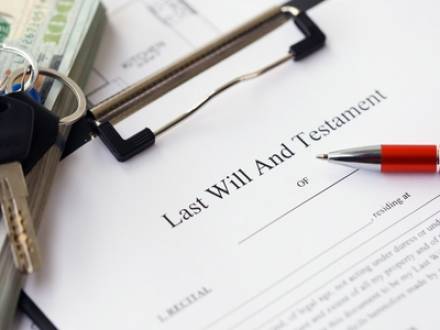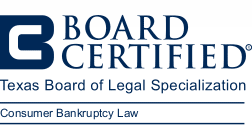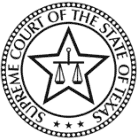When Inheritance Meets Bankruptcy: Protecting a Windfall
 Texas ranked third among states with the highest number of bankruptcies, following California and Florida. This statistic is not particularly surprising, given that these states also have some of the highest populations. In 2024, Texas reported 31,520 bankruptcies. Many factors contribute to why someone files for bankruptcy, including job loss, medical bills, credit card debt, and student loan debt. More than 65 percent of Americans cited medical bills as the primary reason for filing bankruptcy.
Texas ranked third among states with the highest number of bankruptcies, following California and Florida. This statistic is not particularly surprising, given that these states also have some of the highest populations. In 2024, Texas reported 31,520 bankruptcies. Many factors contribute to why someone files for bankruptcy, including job loss, medical bills, credit card debt, and student loan debt. More than 65 percent of Americans cited medical bills as the primary reason for filing bankruptcy.
Receiving an inheritance while you are in the middle of a Texas bankruptcy can definitely muddy the waters. While inheritance can be a financial blessing, it can also definitely complicate bankruptcy. The outcome will depend on the type of bankruptcy you filed (Chapter 7 or Chapter 13) and when you became entitled to the inheritance. Texas bankruptcy laws do offer some protections, but they are not foolproof. If you are worried about a pending inheritance, discuss the issue with your Waller County, TX bankruptcy attorney.
What is the 180-Day Bankruptcy Rule?
The 180-day bankruptcy rule refers to several provisions within bankruptcy law. One of those provisions specifically addresses an inheritance during bankruptcy. Under this provision, if you receive an inheritance, gift, or similar property within 180 days after filing for bankruptcy, you must disclose the inheritance to creditors; the assets will then become part of the bankruptcy estate. This applies to both Chapter 7 and Chapter 13 bankruptcy cases. It is essential to understand that the 180-day rule applies to the date of death, not the date a person received their inheritance.
How Does an Inheritance Affect Chapter 7 vs. Chapter 13 Bankruptcies?
If a person who leaves you an inheritance dies within 180 days of when you filed for Chapter 7 bankruptcy, the inheritance (money or property) generally becomes part of your bankruptcy estate. This means the bankruptcy trustee can take your inherited assets to pay your creditors unless those assets are protected by a Texas bankruptcy exemption.
You are legally required to disclose the inheritance to the court and trustee by amending your bankruptcy forms. Inheritances received more than 180 days after filing for Chapter 7 bankruptcy are typically protected from creditors.
The repayment plan impact of an inheritance on a Chapter 13 bankruptcy can be significant. In Chapter 13 bankruptcy, you typically retain all your property; however, you will be required to follow a 3-5 year repayment plan. An inheritance is generally considered disposable income, which requires you to pay more to unsecured creditors and potentially increases your monthly payments.
Even an inheritance received after the 180-day window can potentially increase your repayment amount if received before the payment plan is completed. As with Chapter 7 bankruptcy, you are required to disclose any inheritance received during your Chapter 13 bankruptcy.
How Can Texas Bankruptcy Exemptions Help Protect an Inheritance?
Even if you receive an inheritance within the 180-day window, there are certain Texas bankruptcy exemptions that can help. For example, if you inherit a home and make it your primary residence, the homestead exemption can protect it from creditors. The personal property exemption (up to $50,000 in personal property) can protect inherited items like furniture, heirlooms, and jewelry. Texas also offers a wildcard exemption, which is $1,675 plus up to $15,800 of any unused portion of the federal homestead exemption, allowing you to protect up to $17,475 of inherited assets.
Contact a Harris County, TX Bankruptcy Lawyer
Understanding the nuances of Texas bankruptcy law and its interaction with inheritances can be complex. Having a highly experienced Houston, TX bankruptcy attorney from The Fealy Law Firm, PC can help you protect your inheritance and guide you through the process. Attorney Fealy is dedicated to assisting individuals in navigating difficult times, with the ultimate goal of achieving a fresh financial start. Call 713-526-5220 to schedule your free consultation.












